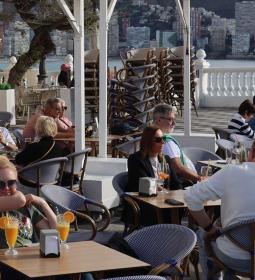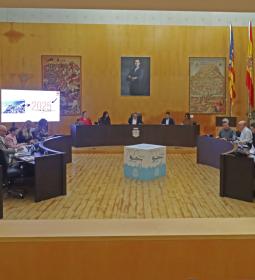The manager of Visit Benidorm emphasizes that data analysis is vital in decision making
Benidorm, a model in the Smart Tourism and Data Forum

Almost sixty years after Benidorm hosted the first edition of its European Week, its status as a tourism leader has led to the city hosting a new encounter with Europe as a backdrop. In this case, the Smart Tourism and Data Forum, organized within the framework of the Spanish Presidency of the Council of the European Union and in which the city, as a model for smart tourism and data, has starred in the first of the work tables of the day.
A table moderated by the president of Segittur, Enrique Martínez; in which the manager of Visit Benidorm, Leire Bilbao, and the director of Tourism and Hospitality of the Basque Government, Aroa Jilete, participated; and in which it has been addressed, from the experience of both, what types of data can be most useful to destinations to improve their management.
Bilbao has recalled that it was in 2015 when Benidorm opted for tourism intelligence, a path that led it to set itself the “challenge” of being “the first certified Intelligent Tourist Destination (DTI) in the world”, a goal that was achieved at the end of 2018 and that “it represented a paradigm shift.” Since then, the city, together with the private sector, has been implementing tools and sharing data.
The analysis of this data has made it possible to “detect needs and provide solutions”, as well as know “what is happening in the city”, “what tourists say” or “how many arrive from the airport”, guiding promotion, managing tourist flows and promoting events or actions at times when tourist activity is lower.
As an example of data monitoring, the Visit Benidorm manager has referred to the management of water, mobility, or the flows of people on the beaches, as well as the Biontrend tool of the Hosbec employers' association, which provides information on the type of client, accommodation regime or possible participation of a tour operator. All this data, Bilbao has transferred, “allows us to value what we are” and be in a process of “continuous improvement.”
Like her tablemate, Bilbao has advocated for “the standardization of data” and the use of common “nomenclatures” for all destinations.
Before this table, the Forum featured a presentation by the executive director of the World Tourism Organization (UNWTO) Natalia Bayona, entitled 'Education and tourism innovation: towards social sustainability by making decisions based on data'.
During his speech, Bayona outlined the growth that investment in tourism technology has experienced in the last five years, reaching 48 billion dollars, since the largest investors in technology are seeing tourism as an interesting opportunity and industry.
The UNWTO representative has delved into the need for Europe to increase its representation in this investment in line with its tourism weight. In this regard, she stated that the continent “has talent” and “hosts startups” that “will allow tourism to be more sustainable,” also on a “social” level.
Finally, she stated that “tourism is the most humane economic sector” and stated that “the investment framework must guarantee that people are at the center as the highest priority” and that sustainability – “our planet” – is the "main goal".








